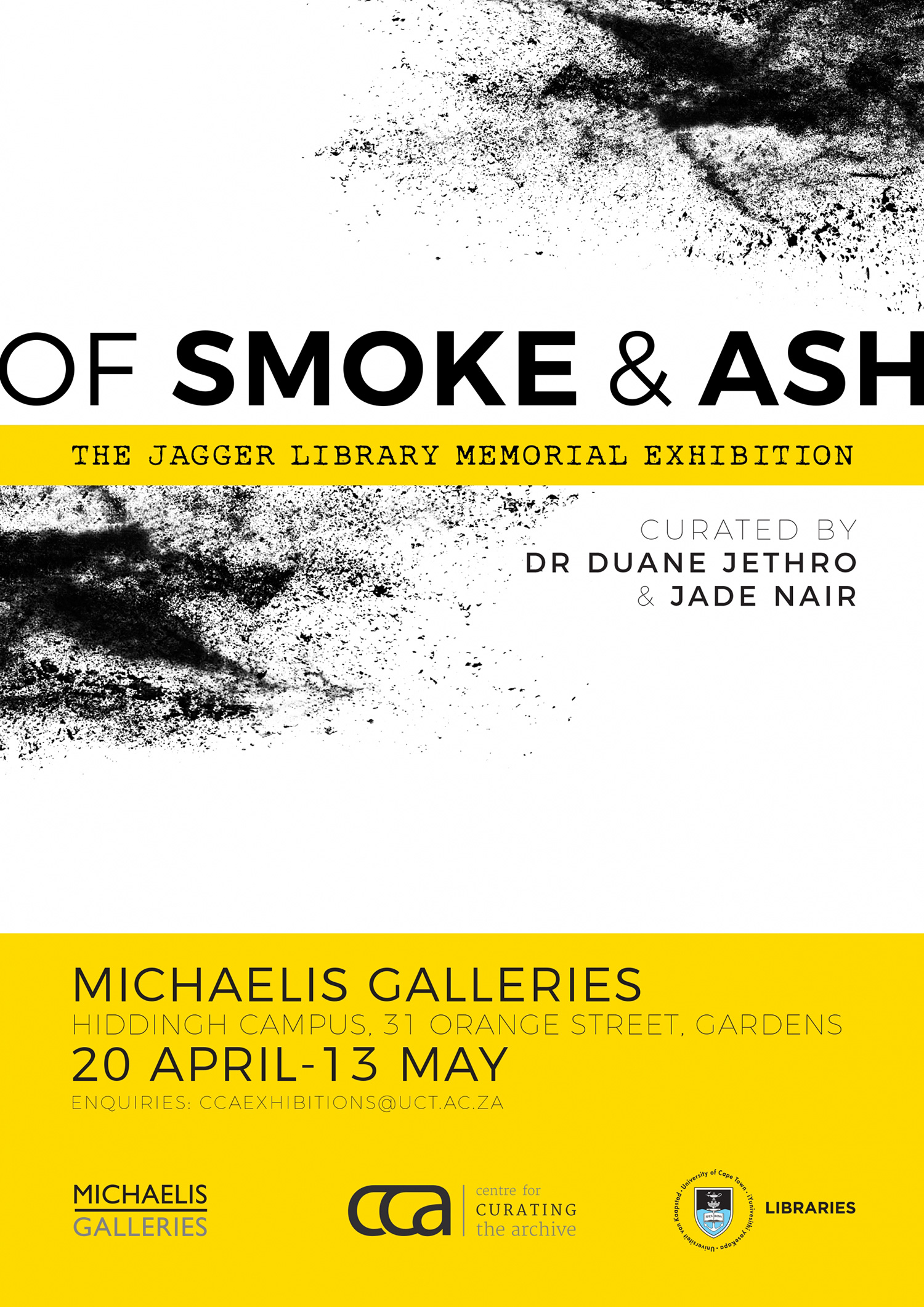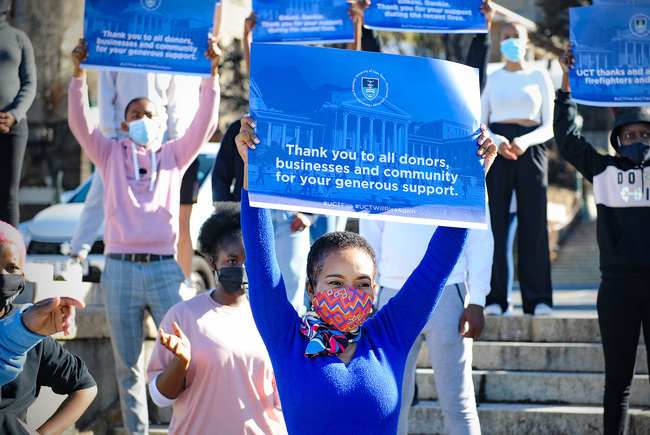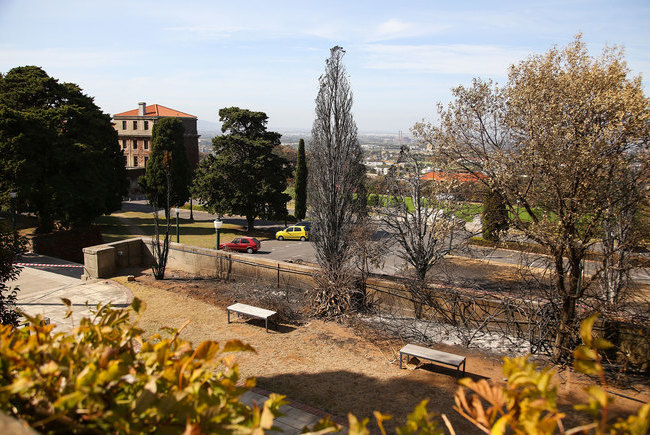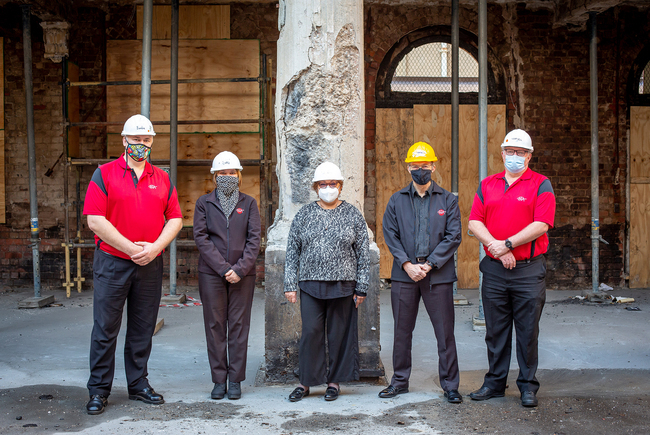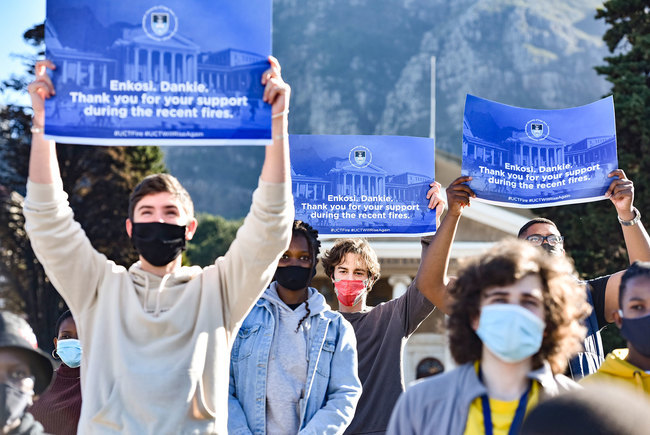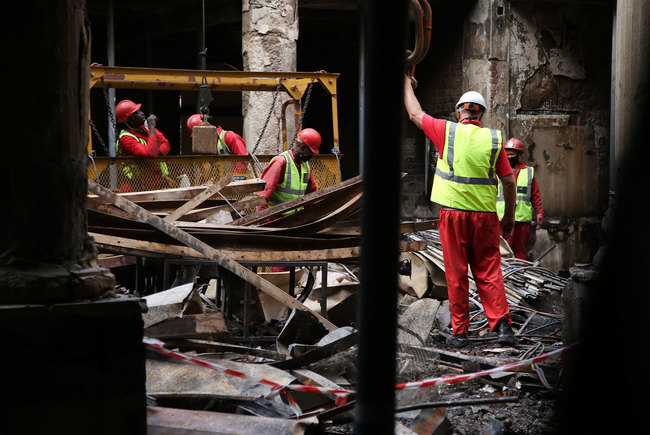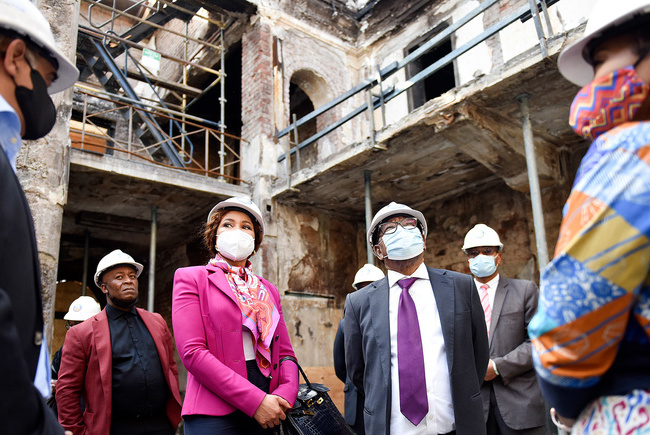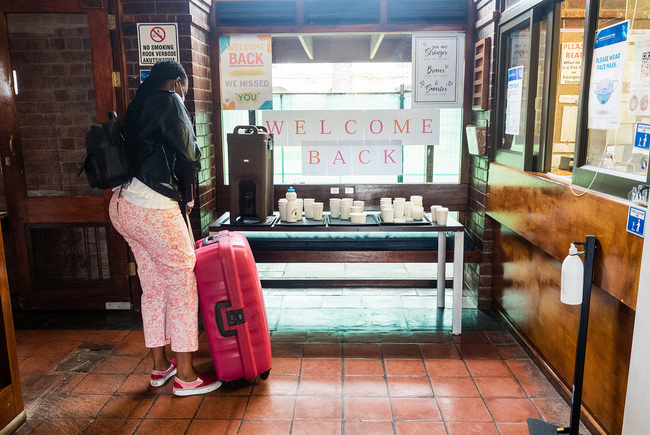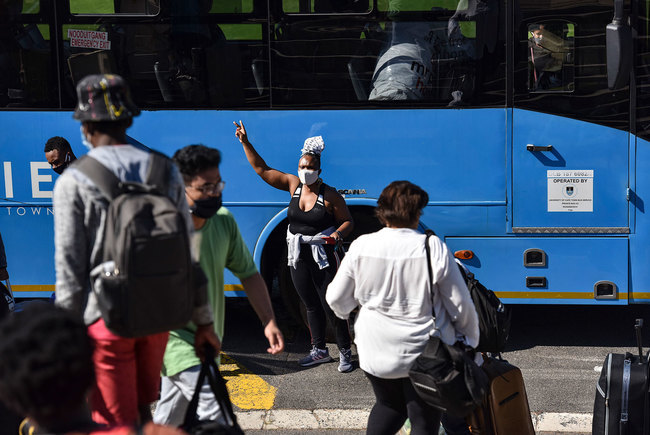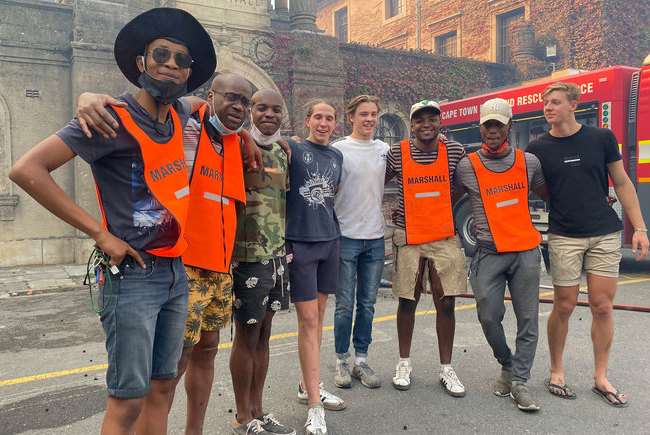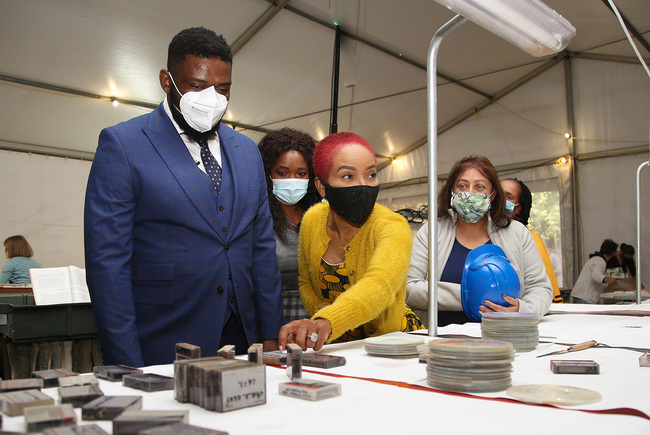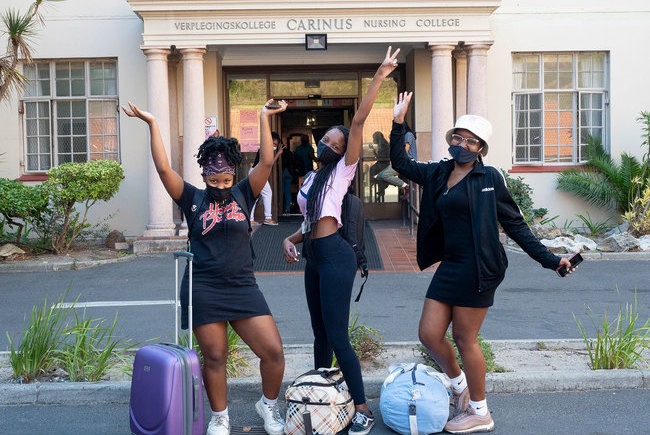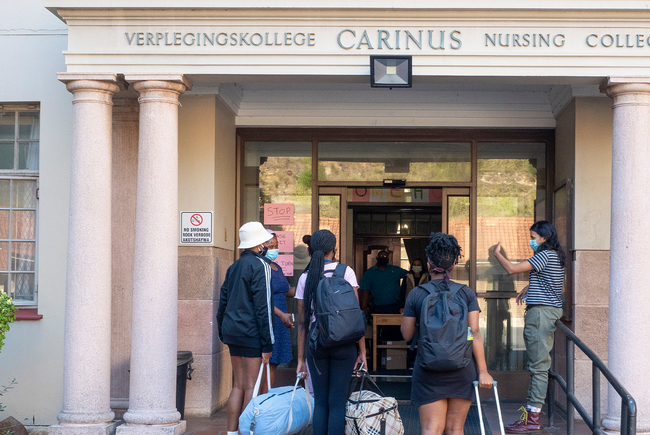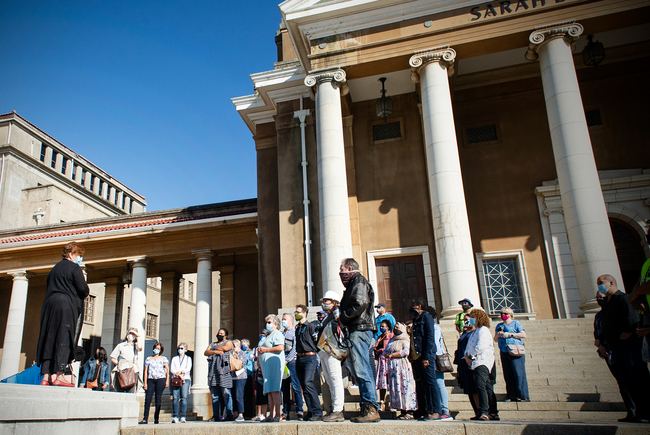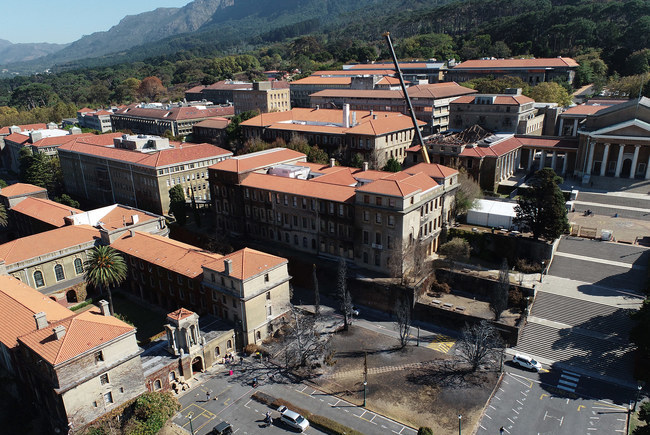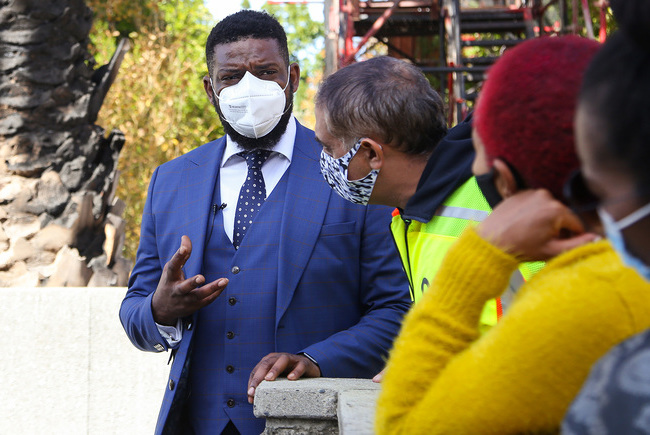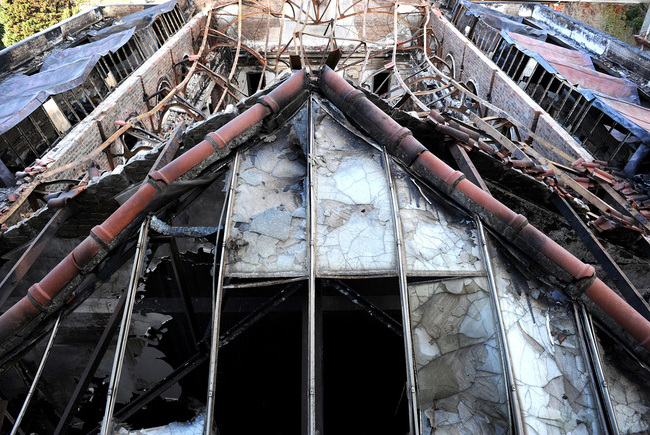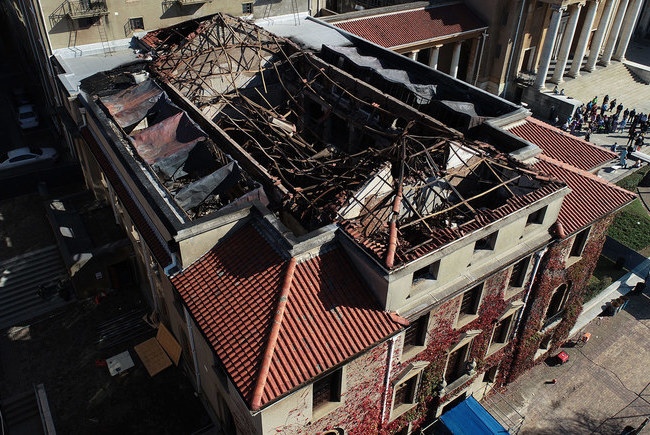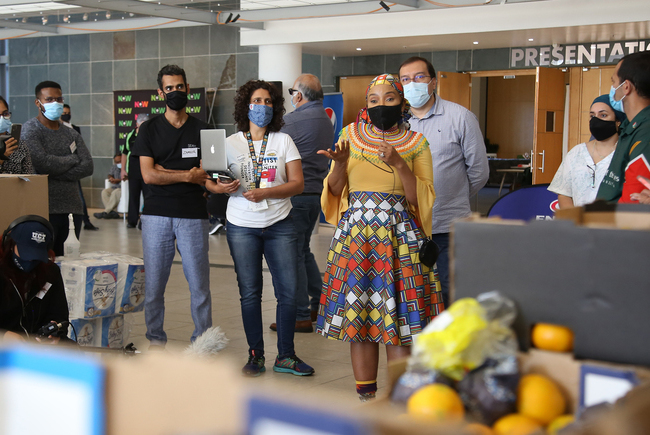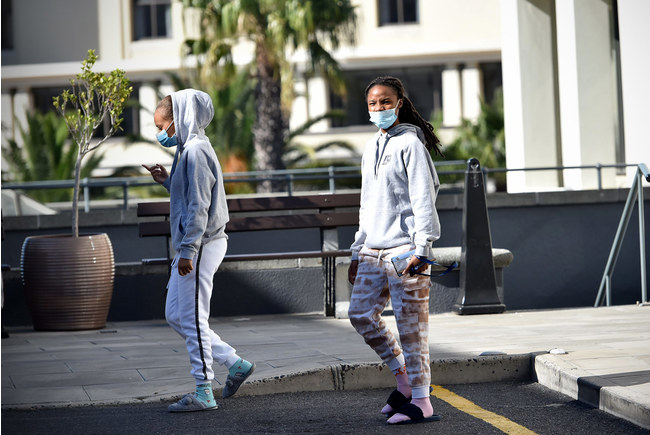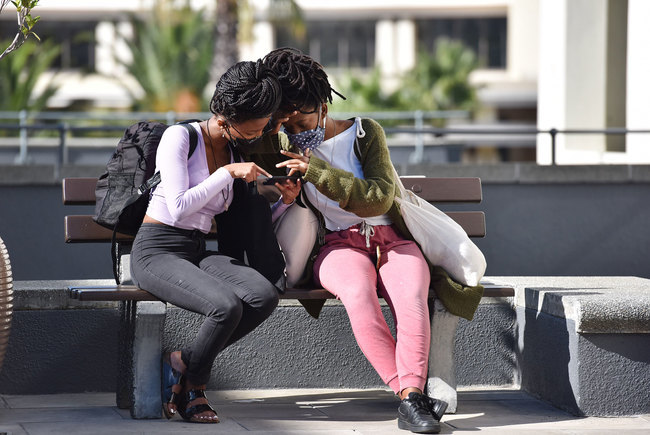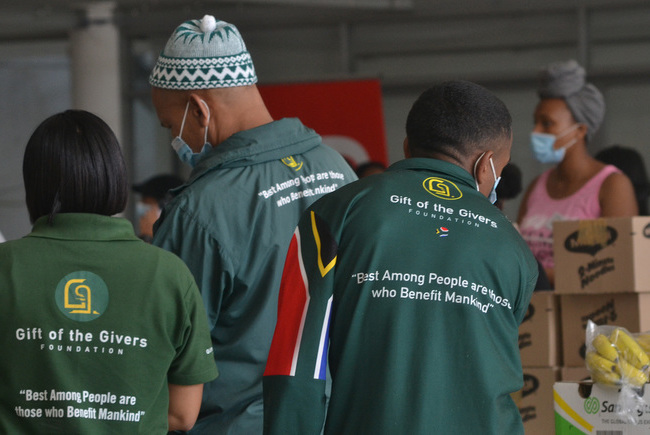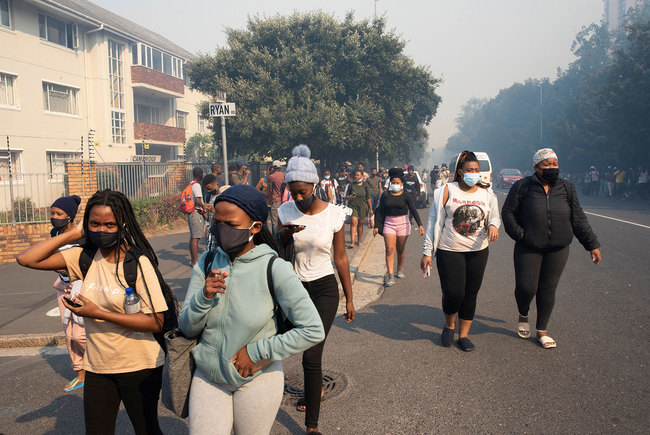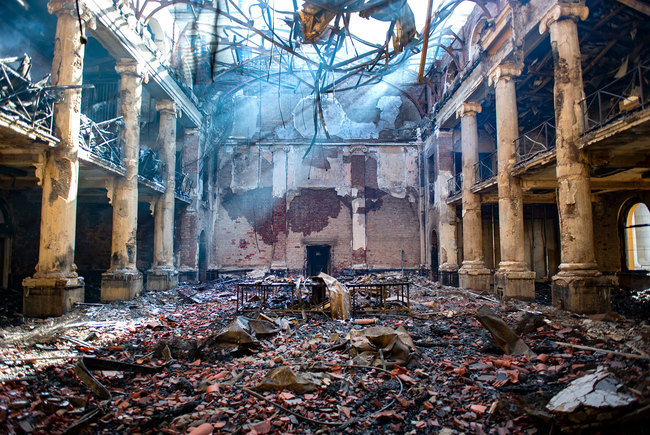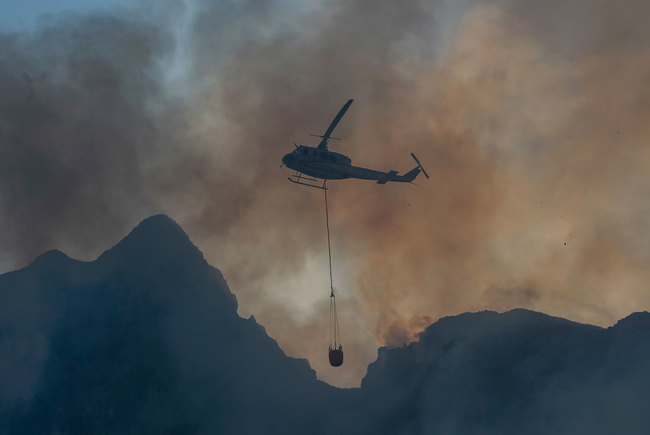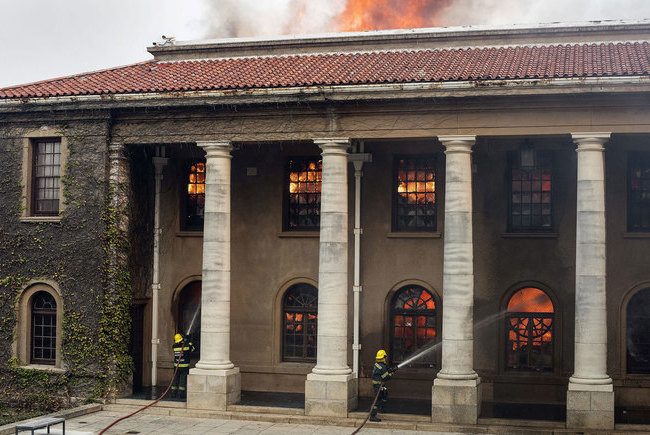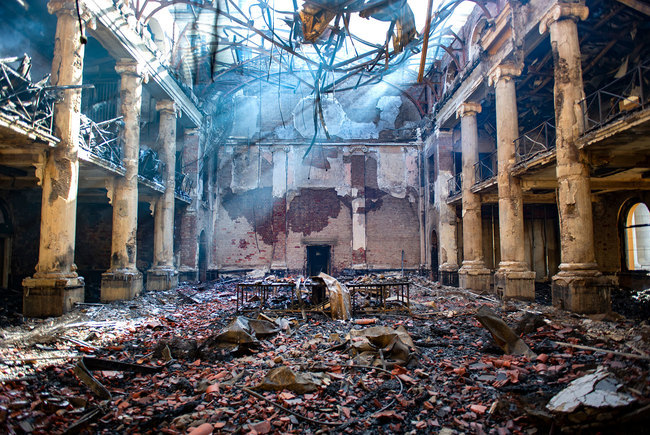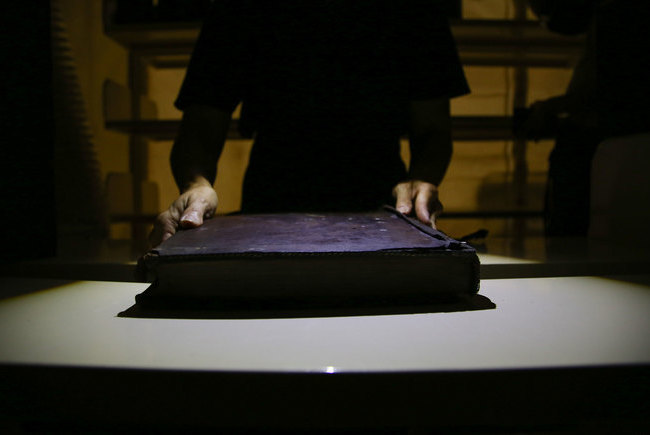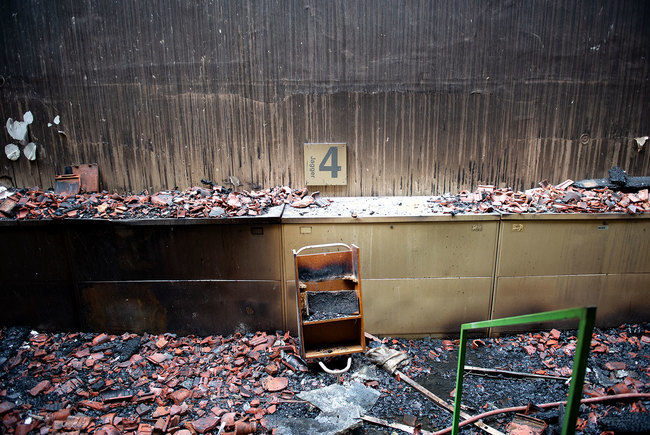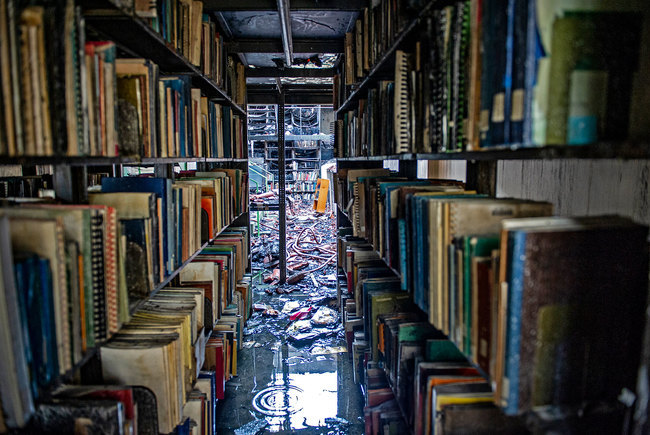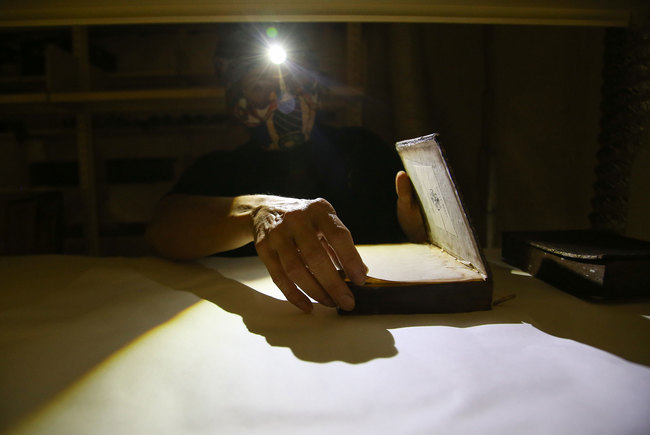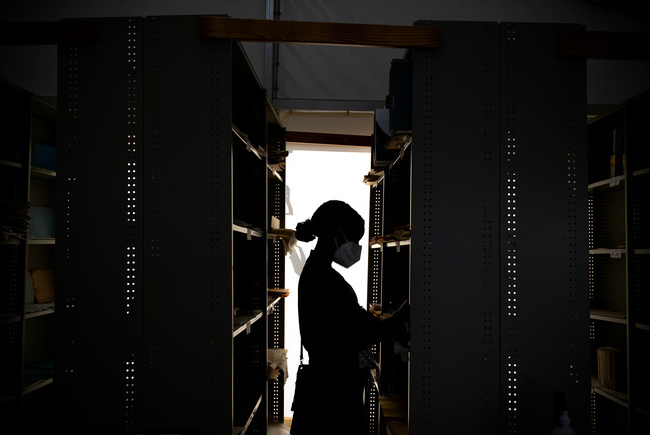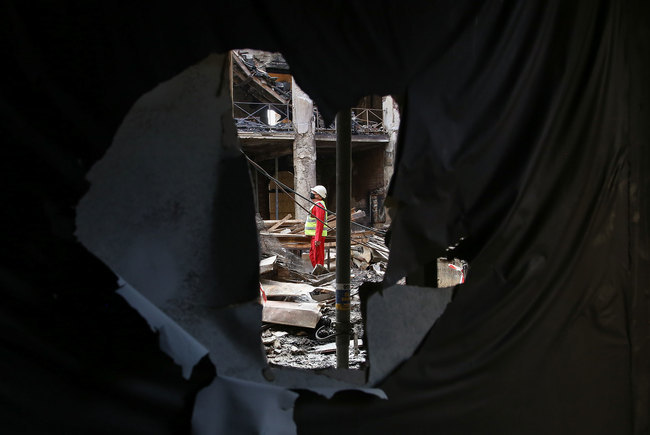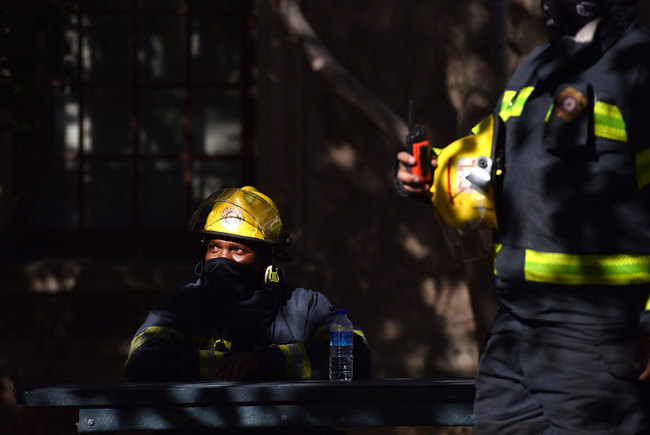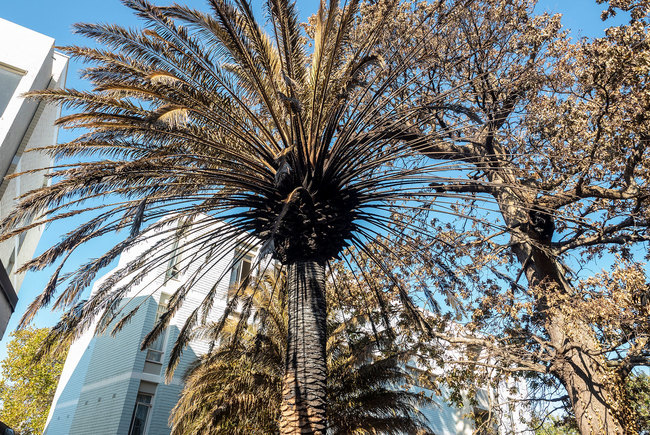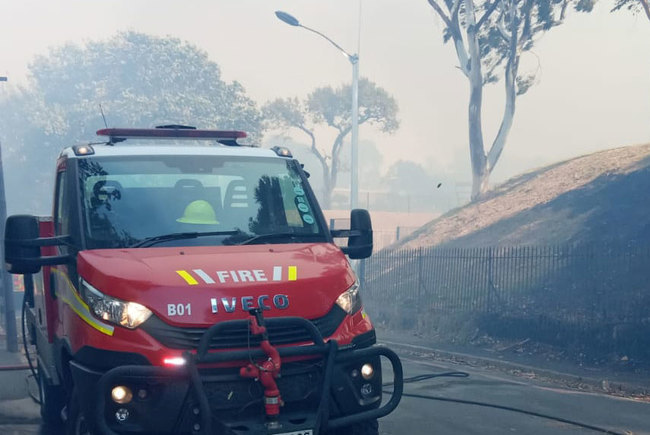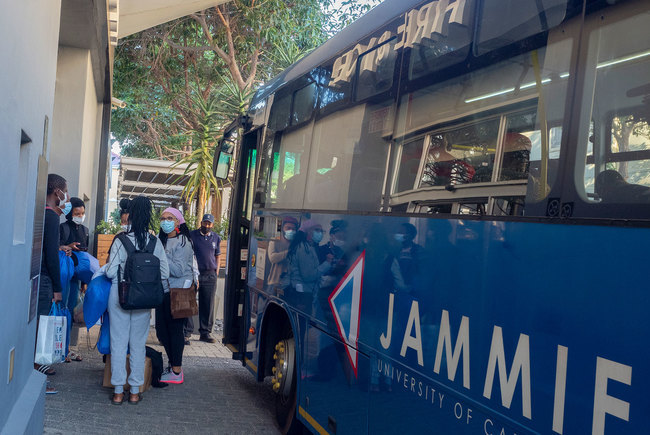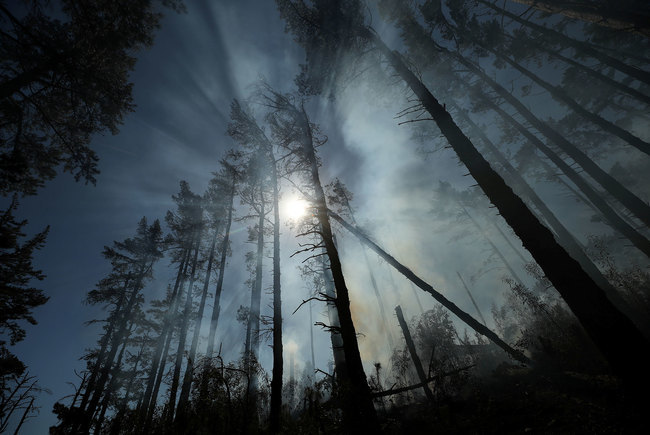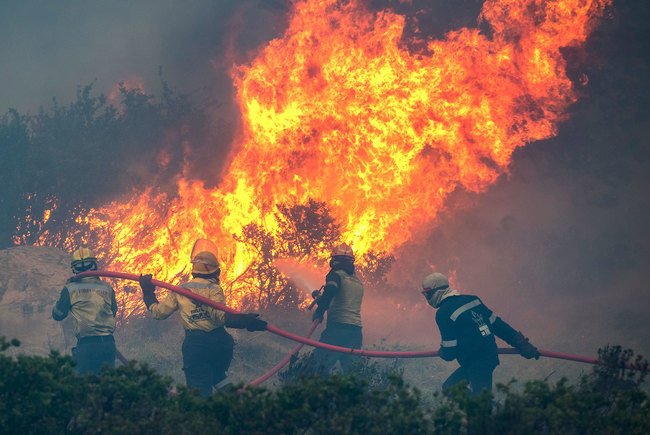Soil erosion barriers in place, post-fire felling, clearing under way
29 June 2021 | Story Helen Swingler. Photos Noelene le Cordier. Read time 5 min.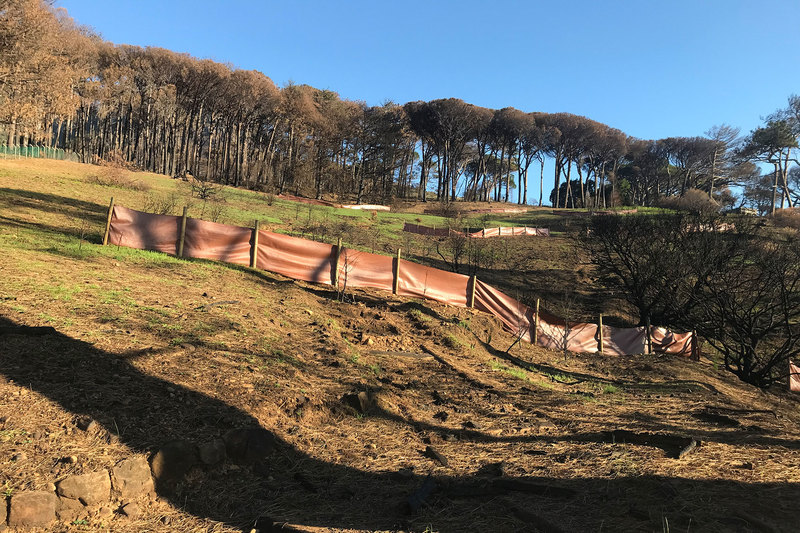
Soil erosion barriers have been erected along the entire Forest Precinct on the mountain side of Madiba Circle, which will remain closed and out of bounds until the University of Cape Town’s (UCT) Gardens and Grounds team has completed work to remove post-fire debris, dead and dying trees. Once this has been completed, they will work on rehabilitating the area.
The main forest, which includes the area around the dam, was badly affected by the 18 April runaway mountain fire. A professional arborist has been appointed to do the emergency arboricultural work. This includes removing and felling damaged trees that won’t survive and pose an immediate risk.
A larger operation to review and decide on the health of the remaining trees will be undertaken over the next three months, once budget has been approved.
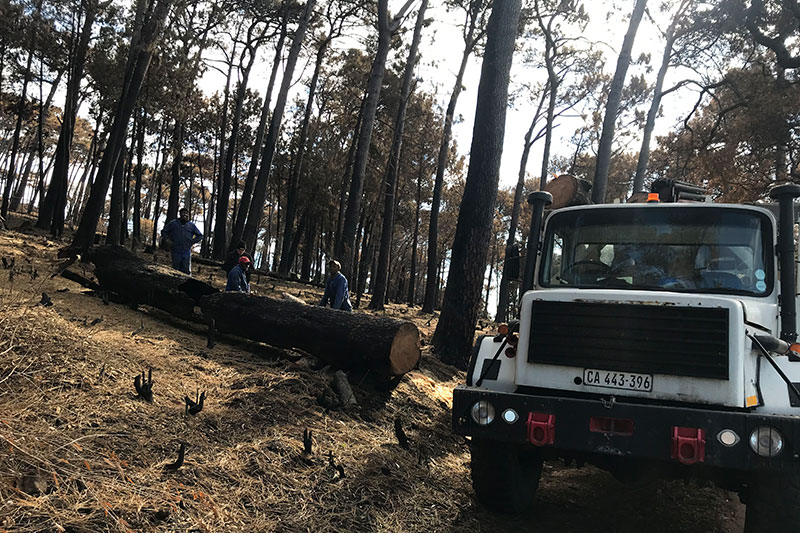
UCT staff and students and the broader community are again asked to avoid the area until this work has been completed. Access to the UCT Educare Centre remains open.
The university’s senior horticulturist, Noelene le Cordier, has been managing this emergency work and will oversee the subsequent rehabilitation of the area.
Le Cordier and her team have been assessing vegetation and soil risks on seven fronts:
- The changes to the landscape caused by the fire.
- The changes to the undergrowth in the main forest, which can cause soil erosion.
- The trees affected by the fire and other emerging risks because of the fire.
- The general soil erosion and linked risks.
- The impact of burnt plants and their roots on weakening soil structures.
- The re-emergence of alien vegetation, such as Australian acacias, Port Jackson and bracken.
- The rehabilitation of burnt sites.
The review is essential with the arrival of winter and the rainy season, when heavy rains could eventually loosen damaged tree root systems that may start collapsing and falling over as winter advances.
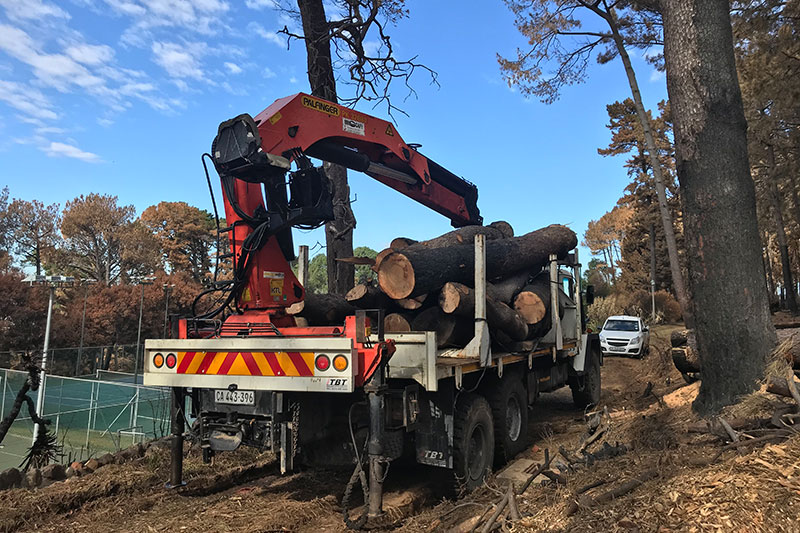
“The whole main forest area is a serious health and safety risk now because at least 90% of the vegetation in this section needs to be removed. The aliens such as Port Jackson, rooikrans and other invasive acacias and wattles tend to take off after [a] fire,” said Le Cordier.
Follow-up work will be required to prevent invasive species from re-emerging. Fortunately, the area had been cleared of thousands of invasive alien seedlings and senescing trees in January this year.
Harvesting burnt trees and timber extraction
A professional service provider will be contracted to underact the clear felling of all burnt timber, removing all usable wood, and all remaining debris will be chipped and stockpiled at UCT or moved from site, said Le Cordier. This will ensure the lowest possible fire risk and open the space for renewal. The process will also ensure there is no soil erosion.
The options for this area will then be considered after the project has been completed.
A specialist consultant and project manager have been appointed to conduct the work. Smaller branches will be chipped and spread on those parts of the site that are not grassed. The parking areas above and on the west side of Madiba Circle will be closed.
“We’ll be analysing the vegetation to see what has the potential for recovery.”
Le Cordier is confident that some of the damaged trees can be saved, depending on their ability to regenerate post fire.
“We’ll be analysing the vegetation to see what has the potential for recovery; some trees had their trunks or crowns scorched but will survive. There’s a beautiful, beautiful Outeniqua yellowwood at the entrance to Chemistry Mall. That has been scorched, but I’m hopeful that it will recover because the base of the trunk isn’t burnt.”
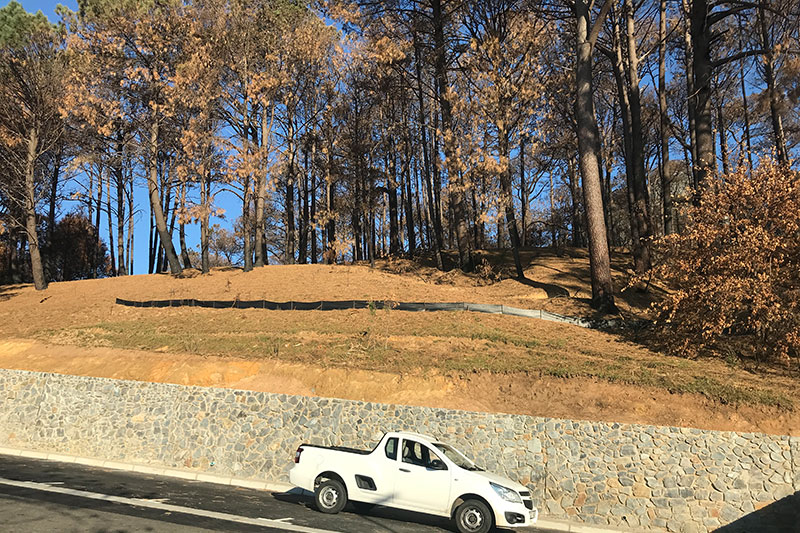
Le Cordier said that whatever decisions are taken on what should be replanted or allowed in the main forest, the critical issue was management, “so you don’t create any ladders in the forest where flames can jump from one tree to another”.
“Those are important decisions that need to be debated going forward. This will definitely provide an opportunity to reassess vegetation and plan carefully for the future.”
For those concerned about the feral cats on upper campus, Le Cordier reports that they were unscathed by the fire and are doing well.
 This work is licensed under a Creative Commons Attribution-NoDerivatives 4.0 International License.
This work is licensed under a Creative Commons Attribution-NoDerivatives 4.0 International License.
Please view the republishing articles page for more information.
#UCTFire – one year later
The Centre for Curating the Archive, in association with Michaelis Galleries (UCT) and UCT Libraries will stage a memorial exhibition marking the one-year anniversary of the tragic Jagger Library fire at the Michaelis Galleries. The exhibition will open to the public on Wednesday, 20 April 2022.
Campus communications
Updates on Campus Fire
Campus communications
News and videos
Memories of Jagger Library – stories from the UCT community
Content submitted by members of the UCT community has been published with little to no editorial intervention from UCT News.
#UCTFire – stories from the UCT community
Content submitted by members of the UCT community has been published with little to no editorial intervention from UCT News.
In an email to UCT students, Vice-Chancellor Professor Mamokgethi Phakeng said:
“Thank you for your patience as we seek ways to return to full academic activity at the University of Cape Town under COVID-19 regulations. Our first priority is to ensure the health and safety of everyone who needs to return to campus buildings.”
UCT is deeply grateful to all the donors who supplied food and other essential items for our students, and to everyone who has so generously offered other forms of support and assistance.
Everyone who would like to support the #UCTFire emergency relief fund is urged to please make financial donations to UCT through the UCT Alumni Ways to Give web page.
Donations can also be made by EFT using the details below:
Account name: UCT Donations Account
Bank: Standard Bank of South Africa
Branch code: Rondebosch Branch, 025009
Account number: 07 152 2387
Swift code: SBZAZAJJ
Please include your donor name if you so wish, as well as the reference for your donation, e.g. Name Surname, #UCTFire.
Messages of support







